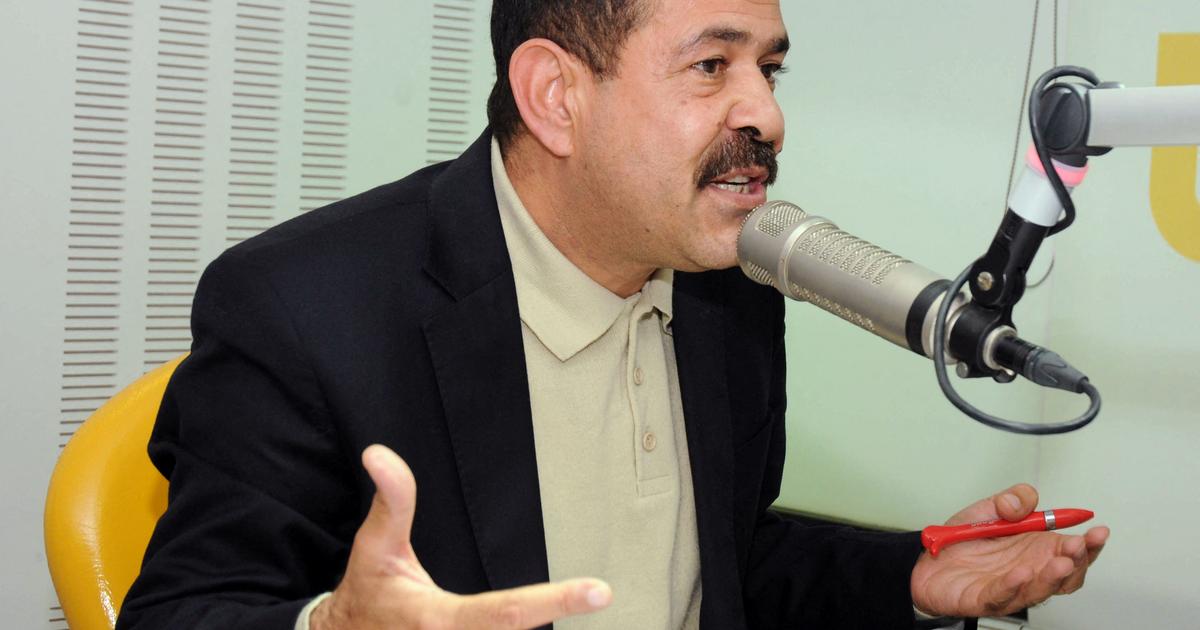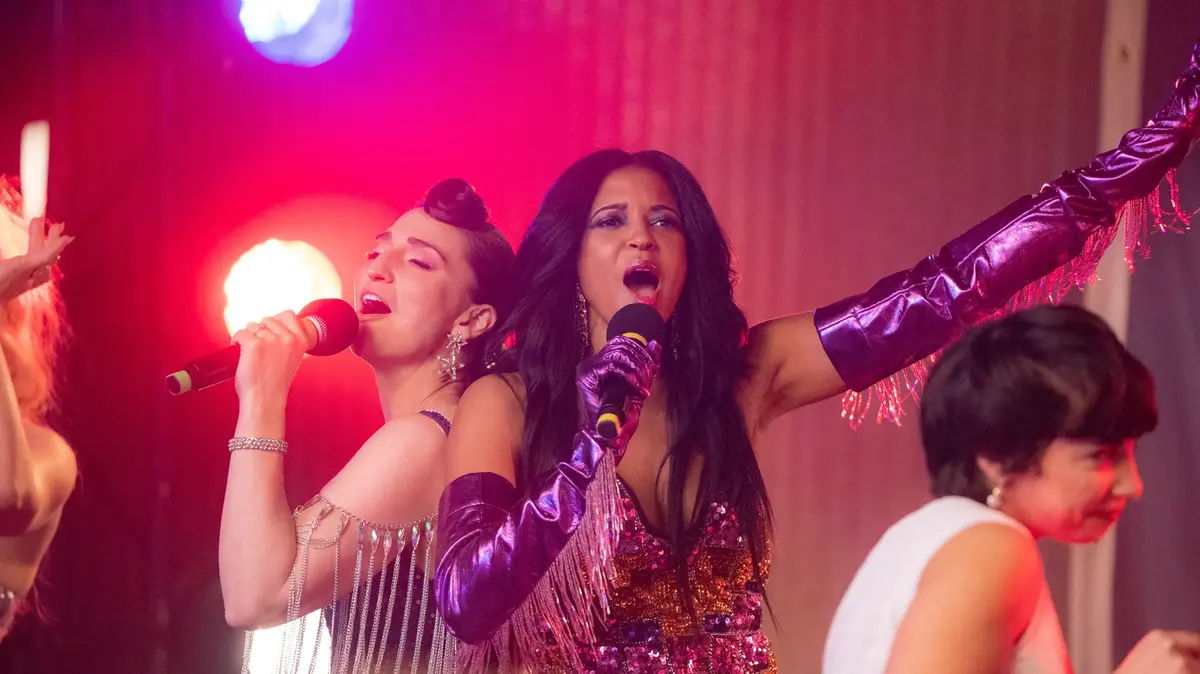culture
Music
Israeli music
25 years since the assassination of Yitzhak Rabin: 25 songs related to his life, character and work
From Aviv Geffen to Miri Aloni, Mifa Yarkoni to Ofra Haza, Mishi Levy to Meital Trabelsi, from "Shir Harut" to "Murder Report": dozens of songs were written about the life and death of the prime minister and defense minister killed by an assassin, while other songs Became identified with him and his memory.This tune can not be stopped
Tags
Yitzhak Rabin
Aviv Gefen
Haim Guri
Nadav Menuhin
Friday, 30 October 2020, 08:43
Share on Facebook
Share on WhatsApp
Share on general
Share on general
Share on Twitter
Share on Email
0 comments
The "Lock Time" series
On The Rocks
Rivka Zohar and Vichy Levy in a cover version of the song "It Happens", ...
Noam Semel, director of the Habima Theater, after the president of Beit ...
A glimpse into the seventh season of "Boys and Girls" on the children's channel
Tzachi Hanegbi Baruch read a confrontation in News Studio 13
You Should Know (The Undoing), Nicole Kidman, Yo ...
About a hundred musicians from all the chamber orchestras in the country perform ...
Actor and director Yehuda Barkan is laid to rest: "We will not part ...
"The Singer in the Mask", Chapter of the Union of Groups
In the video: Video from various periods Rabin as chief of staff and defense minister (Photo: Ministry of Defense spokeswoman)
The biographies of Prime Minister and Defense Minister Yitzhak Rabin are intertwined with Zionist history.
As someone who studied at the Kadouri Agricultural School, fought in the Palmach, served as chief of staff and became a statesman identified with a historic peace process, he was a prominent figure in a series of events of wide national significance.
However, Israeli history has a soundtrack, and words and sounds have always been associated with its founding events.
This undoubtedly also applies to Rabin's life, and especially to his last years as prime minister, and even more so to their jarring ending chord - his murder by an assassin in Tel Aviv half a century ago.
It is no coincidence that many commemorate him across the country at many poetry events.
To mark 25 years since the assassination, we have collected 25 songs that are directly linked to Rabin's name, character and actions, as well as the assassination and its impact on Israeli society.
Much more could have been collected, more indirect or casual.
Most of the songs are arranged by the year of their release, or by the moment they were tied to the man.
A few words are repeated: evil, peace, square, murder.
More on Walla!
NEWS
"Twice in my life I have seen death with my own eyes, so today I am really not afraid of it"
To the full article
1940: Farewell blessing for the fourth cycle
One of the first poems of the poet Haim Guri (then another Chaim Gurfinkel), who studied in the fifth grade at the Kadouri agricultural school, one class under the boy Yitzhak Rabin.
When the upper class finished their way to school, Guri wrote to Rabin and his classmates, including Shaul Bieber, a greeting of success to a Russian melody: "For an autonomous cycle of the road, the blessing of rubbing is broadcast, enough of their kneeling, kneeling, three years and more."
Guri's songs will accompany Rabin for many years to come.
To listen to a song on the Zimreshet website
1948: The Evil Ones
Rabin was drafted into the Palmach as a student in Kadouri, and climbed the ranks until he became a senior officer. After almost a decade between his ranks, during the War of Independence, he was appointed commander of the battle on the way to Jerusalem. In that war, the Palmach band - the Cheesebutter - was formed. The most significant military in the field.
"The Evil", which was also written by Haim Guri, appeared on the band's third program - "The Palmach Choking for Tomorrow" with lead singer Gideon Singer, and was one of the songs most associated with the band, the Palmach heritage, and with Rabin himself - who even said that it was His favorite song.
The performance that is etched in the collective memory is that of the Nahal band from 1972, which is decorated with a mandolin.
After the murder, the "bad guys" became even more associated with Rabin. At a rally in the square a week after the murder, Shoshana Damari, who is also identified with him, accompanied him on piano; The Nahal band of 1972 was also united for a special performance in Rabin's memory on the program "Lila Gov" hosted by Gidi Gov, one of its members.
Many of the memorial poems written after his death directly quote a variety of lines from it.
More on Walla!
NEWS
A court will not help.
Even with shots Adi Beatty will not be a quarter of Beyoncé
To the full article
1949: Bab al Wad
Another song by Haim Guri, which deals with one of the painful symbols of the War of Independence: the journeys of armored vehicles to Jerusalem - a battle commanded by Yitzhak Rabin, in his role as commander of the Harel Brigade.
The song, which Guri dedicated to "Warriors of Sha'ar HaGai", was composed by Shmuel Preshko, and performed by both Shoshana Damari and Yaffa Yarkoni.
Travelers in the Sha'ar HaGai area will find the "Yitzhak Rabin Park" there today.
1967: Nasser waits for Rabin
Eighteen years had passed, and Rabin was chief of staff.
At the end of May 1967, on the eve of the Six Day War, Egyptian President Gamal Abdel Nasser declared: "If the leaders of Israel and General Rabin want war - hello and hello. We are ready."
Haim Hefer, Rabin's colleague of the Palmach, turned things into a joke, and wrote a short chorus that was a hit in the mouth of Arik Lavi. After the great victory in the war, the celebration around "Nasser waits for Rabin" intensified even more, and there was also victory songs. Bnei Berman's "Letter to Nasser", which also warned the Egyptian leader: "Rabin is looking for you in a candle." Later, when Rabin ran for prime minister for the second time in 1992, his election slogan was based on the same saying, with a certain twist: this time, "Israel Waiting for Rabin. "
1968: They did not take him
A year later, Rabin is still identified as the hero of that war.
Haim Hefer then wrote to Lipa Yarkoni, the singer of the wars, a tango about a miserable man with a variety of opinions on security issues, who for some reason was never called to the battlefield, and therefore was unable to boast a military past in front of the glorified.
One of the prominent songs in which the former chief of staff was mentioned by name reads: "Now with all the commanders he sings songs of Hasidim like some rabbi / and he is cheerful and happy even though he swears not to say hello to Rabin / he argues about battles in all heat, as if he himself was Everywhere, and so he forgets that then in his time - they did not take him. "
1993: Hello Gaza
And in a sharp transition, a few decades ahead: Rabin managed to serve as ambassador to Washington, a Member of Knesset, Labor minister and prime minister, to resign - and return more than a decade later to the most senior bureau, with the famous "Speech I Will Navigate."
This tenure was characterized, among other things, by negotiations and diplomacy with the Palestinians and the Oslo process.
With the signing of the agreements, which included an Israeli exit from the Palestinian settlements in the Gaza Strip, singer Yishai Levy recorded a sober farewell song called "Shalom Lech Gaza" for the event: "Shalom to Deir al-Balah, Shalom to Muazin, Goodbye Abdullah - in Rome or China."
Levy also performed the song at the Peace Rally in Kings of Israel Square on November 4, 1995.
1994: Hello, hello
Another song of peace, with a similar title, was written by Ehud Manor in honor of the peace agreement with Jordan, which Rabin signed in late October 1994 with Hussein, King of Jordan.
The lyrics, which express much of the excitement of the event, were composed by Shlomo Gronich, who also performed it with the Moran Choir in the solemn ceremony.
Gronich will later also compose Rabin's last speech.
1994: Winter 73
Shmuel Hasefri, who undertook to write materials for a special education band, said that he wrote one of the military bands' favorite songs on a gloomy day for him: after returning from the funeral of Yitzhak Sadeh and visiting the grave of a friend who fell in the Yom Kippur War, he heard radio reports of the Oslo talks collapsing.
He poured his feelings into a page for ten minutes to a song composed that night by Uri Vidislavsky.
One of the band members, Tal Musari, told Walla!
Culture that the book "gave us a task: to look into the eyes when we sang at rallies. We would look Rabin and Barak in the eyes and sing the song, and one day at the President's house at which ceremony Rabin approached and asked who the band commander was. In the most direct way - the intimate conversation I had with Prime Minister - He told how much he loved this song and talked about Yom Kippur. We were amazed by the private lesson we got from him and he asked how he got the song. The next day they sent it to him, and a month later he was murdered. So, in one of Leah Rabin's first interviews after the murder, she told "The CD he played in the car was 'Winter 73' - and then they started playing the song back and forth at every possible station."
For the full story behind the song
1994: The color box, days of forgiveness and kindness
Following the signing of the Oslo Accords, Rabin, Shimon Peres and Yasser Arafat won the Nobel Peace Prize.
At a ceremony held in December 1994 in the same Oslo, Norway, the singer Ofra Haza was invited to sing the anti-war song "The Color Box" - written years before by a woman named Tali Sorek, when she was only a girl, and composed by Kobi Oshrat - in English translation.
In addition, Yehoram Gaon appeared at the event with another original peace song - "Days of Forgiveness and Grace", written and composed by Thelma Alligon-Rose.
"Of the prime ministers," writes a genius in his biography, I loved Yitzhak Rabin the most. "He said he was never as excited as before that performance in Norway. He had previously recorded another song addressed directly to Rabin, called" Al Tira "- which she also wrote Alligon-Rose - in an attempt to give him the upper hand for the peace process.
1995: Nowhere
Aviv Geffen, a young musician who was already known for his provocative content at the time, caused a stir when he sang in the theme song of his fourth album: "Whoever is there goes drunk, it's the prime minister."
Many assumed that the prime minister in the song is, well, Prime Minister Yitzhak Rabin - but Geffen denied this, saying that he even supports Rabin.
The two met on a special program of "The Circle" by Dan Shilon on Channel 2 a few weeks before the assassination, and Geffen congratulated Rabin.
In his recent book, Rabin's associate Shimon Shebes says that the prime minister almost canceled his participation in the same program because Geffen did not serve in the IDF, but returned after persuasions. Finally, Geffen even appeared at the peace rally a few weeks later. .
4.11.1995: Cry for You, A Song of Peace
Geffen did attend the rally, and was supposed, according to his testimony, to perform "A Billion Mistakes" in it, but decided at the last minute to perform a mourning song - "Cry for You", written in memory of his friend Nir Spinner who was killed in a car accident.
At the end of the rally, the two were documented hugging, shortly before the shooting.
"A great server," Rabin told him.
Another song, perhaps the most memorable moment of all from that rally, is "A Song for Peace" - a protest song performed by the Nahal band in 1969 and caused a storm in real time, and now it was sung by all the rally participants with Miri Aloni. Aloni is the singer who is more identified than any other musician with the event, following which she changed the lyrics to "Remember the Walkers" instead of the word "assume" that was originally there. She later recorded another song written about the murder, "That Night" .
11.11.1995: Along the sea
One week after the murder, a memorial service was held in the square, with the participation of the best Israeli artists.
The rally, which opened with "Tears of Angels" performed by Yoni Rechter, included performances by Beehive who united to perform "Small Country", temporary sanity that also united to perform "Last Summer", Yehuda Poliker who sang "Flower", Gali Atari performed. "I have no other country" together with Korin Elal, Shlomo Artzi who dedicated "That Man" and many others to Rabin.
However, the most memorable performance of all is that of Ofra Haza, who then performed a song she recorded a year later: "Along the Sea", which opens with the line "Tell me how to stop the tears".
This live version of the song, whose opening incorporated another song of hers - "The Whole Soul", appeared in the "Hello, Friend" collection and became iconic.
1995: Hemdat Avot 2
Some time after the murder, a musical program called "Shir Frida" was broadcast on Channel 2, with the participation of a number of musicians, dedicated to the memory of Yitzhak Rabin.
Inbal Perlmutter, lead singer of the band Witch, performed a song with the obligatory name "Hemdat Avot 2" for the first time.
It was written a few months earlier, against the background of the terrorist attacks of that period, but following the murder she decided to sing the protest song, which was signed with the words "It is impossible to build a paradise in blood".
Perlmutter's remarks in a conversation that preceded the show's performance were incorporated after her death in the song "Dark Dream" by Assaf Amdursky, which itself can be considered a song about the frustrations of the candle generation.
1996: The Tear Rebellion
And again Aviv Geffen, in one of the first reactions of a major Israeli musician to the murder.
"Murder peace in the square, I saw before my eyes how it ended. And it turned out that a religious man without God saw too many signs, and still smiled in custody. When will you understand already?", Sang Geffen, one who was there.
From now on, the songs written about Rabin are songs about the assassination.
1996: Murder report
"Two", the album that Shlomo Artzi released a few months after the murder, largely symbolizes the musical direction that the Israeli mainstream will go in the second half of the decade: soft rock, melancholy and comforting.
The album has several clues to the assassination, while the "murder report" is the explicit one, linking the Canadian assassination to the assassination of Rabin.
"On Saturday in Tel Aviv a city without a sky, November 4, ninety-five, was killed ... probably twice, two shots from an assassin's gun. His funeral was held two days later, one madman shot him at close range, we were at home, we just sat like that, then we went To cry in the square, "sings Artzi," how will rest come upon the land of fear, and only the question of who else will be murdered? ".
In his songs, Artzi will also mention "one madman's barrage of shots at the prime minister" in "Lan Lan Lan" on the same album, as well as "The Square Where Our Father Yitzhak Died" in the song "We Caught", more than a decade later.
1996: Oh Captain
Meital Trabelsi was at the peace rally off duty, and continued with friends to a film at the end of Rabin's speech - until someone entered the studio with the news and interrupted the entertainment.
A year later, on the eve of the anniversary, Shemer translated and composed the well-known Walt Whitman poem, first published on November 4, 1865 - 130 years exactly before the murder.
For the performance, she chose Trabelsi, who performed it in front of the Rabin family on a special broadcast that year.
"They were there during the song, they cried in front of me. I had a very hard time singing in front of them and I remember that very well. I do not know how I succeeded at all," she previously said in a conversation with Walla!
culture.
Leave history.
For the full story behind the song
1997: The Light at the Edge
The great Israeli singer Arik Einstein recorded in 1997 together with his partner Shem Tov Levy a short album, which almost all responded to the murder in one way or another: "It's hard to write tears" expressed the atmosphere of mourning, "It suddenly fell on her" sounds like it was written for Leah Rabin, and of course "Hello friend", explicitly from everyone.
But the three of them surpassed a brilliant song written by Yaakov Gilad and Yehuda Poliker, which is in line with Einstein's greatest classics.
With an iconic guitar solo and a chilling accordion, Einstein sings about the graffiti in the square, the fear, and the abandoned struggle between the candles and the darkness, which does not reach a decision.
1999: Genesis
Eviatar Banai, shortly after his successful debut album, embarked on an experimental project that is very far from its predecessor.
"Trip Trip" included a strange protest song, and quite unusual in Banai's repertoire, with a clear parable.
"We are a generation that kills, the national believer, a nationalist terrorist. It is not the god of the earth, it is the god of fear - the god of revenge," sang Banai, "the last king was murdered before the end of the century, and the smiling murderer studied Torah at Bar Ilan."
1999: Palestine Concertina
In a song written by Eitan Glass to the tune of Caitano and Luzo, Sarah Rita sings about a wonderful Israeliiana dream, in which camels fly over Dimona and leaders learn to dance like a ballerina.
The idyll is interrupted by only one man with a gun, and a sheet of song stained with human blood.
"Is this the old land of Palestine? Tonight it will go down like a rhythm of guillotine. And how can we continue, mother, when a man wields his sword will be a routine - in a beloved land we will no longer know," she concludes, in the album "Open a Window."
2000: Autumn without him
Achinoam Nini, who also participated in the peace rally in which Rabin was assassinated, also recorded a song dedicated especially to Rabin, written by the poet Natan Yonatan and composed by her and co-creator Gil Dor.
The song quotes "The Evil Ones", as well as "The Finjan", also a song that is associated with the days of the Palmach, as well as "A Song of Peace". Jonathan wrote: "We will make the song like a bouquet of flowers, from last words that man Singing, from the silence of the men, from the weeping tears, from children lighting candles in the square.
From love verses left on the wall, from all of these we will ignite a flame of hope.
The premiere was for Leah Rabin.
For Natan Yonatan, this is the second song associated with Rabin. After the assassination, and after Shlomo Artzi sang it at a rally the following week, he dedicated his song "That Man" to him. Which has not been attributed to any specific person before, and Jonathan actually wrote it about himself. To Isaac, who all his life had few things and much glory, who shone in body and spirit upon us all, who were around him brilliant people, but there was no one like him.
Which was like an ancient fortress at the end of the road.
From now on, Yitzhak Rabin will be that man who came out of his anonymity and I dedicate the song to his memory. "
2004: Sticker song
The saying "hello, friend" - based on the Hebrew words of US President Bill Clinton at Rabin's funeral - has become a currency, which has also turned into some popular stickers, a remnant of an era where people stuck slogans with their political opinion on their vehicle instead of pouring used clichés into personal profiles online.
Writer David Grossman used titles from a variety of stickers as a parable for polarized public discourse, and the song he wrote escalates to the paraphrase "It's all because of you friend."
He submitted the result to the band Snake Fish, which also hosted his beloved Azouri.
A later brother of the same song, around the same point, is "Wikipedia" co-written by Hanan Ben Ari and Keren Peles, and among the many generalizations he seeks to shatter, the singer mentions "All the settlers murdered Rabin."
Later, the snake fish recorded another song commemorating the murder, at the request of the Rabin Center - "What if".
Other rappers who mentioned Rabin were Subliminal and Cello, in the song "Eyes to Them," among several other politicians.
2013: Candle Boy
The Entertainment, a band that specializes in assembling and disassembling the pains of this place, presented in 2013 its great epic of despair - "The Escalation Parent".
Unusually in the band's repertoire, it also included a Bossa Nova-style instrumental piece.
This is the melancholy "candle boy" that lasts a little over a minute, a small and sad ironic monument to innocent young people with dreams of a new Middle East.
Another of the band's songs, "Hantz's Song," conceals a macabre parody of a different kind, with the speaker mentioning "a memorial candle from the day they murdered Yitzhak… Modai" (a senior minister whose years of political activity quite coincided with Rabin's, and was not killed at all).
Order escalation at the pastimes
2016: Remember
The last song is not a memory song, i.e .: depends on how you look at it.
Omar the Baron was 10 years old when Rabin was assassinated.
He represents a generation of musicians who are accompanied by new traumas, and have grown up within an education system that will commemorate Rabin already fixed in its calendar.
Of all the founding events in his breakthrough song, he opens with a sincere answer to the common and familiar question, referring to events that symbolize the end of Rabin's two terms as prime minister: "I do not remember where I was when Rabin was assassinated or when the Likud won the alignment and Chaim Yavin coined the term revolution."
And really, after so many years, it's getting complex to remember.
And also: "Friend You Are Missing" by Matti Caspi;
"Artzi Artzi" composed by Hava Alberstein with lyrics by Yehuda Karni, and dedicated to Rabin in 1996;
"Not Afraid" by Manny Beger and Chaya Samir, which contains an excerpt from Rabin's last speech;
The song "Yitzhak Rabin" by Ivory Coast reggae singer Alpha Blondie, which was released in 1995 and even became the theme song for his next album;
"Hello Friend" by Sarit Hadad and Sheriff, who apparently did not write directly about the murder but came out next to him;
Yuval Mendelssohn's "murder of Rabin" on his Sabbath as "the bastard Yuval," a kind of "explanation for children" about what was happening;
And more and more and more.
Share on Facebook
Share on WhatsApp
Share on general
Share on general
Share on Twitter
Share on Email
0 comments

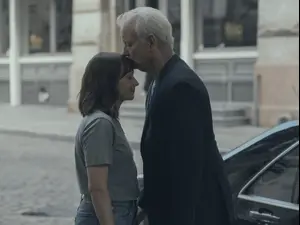
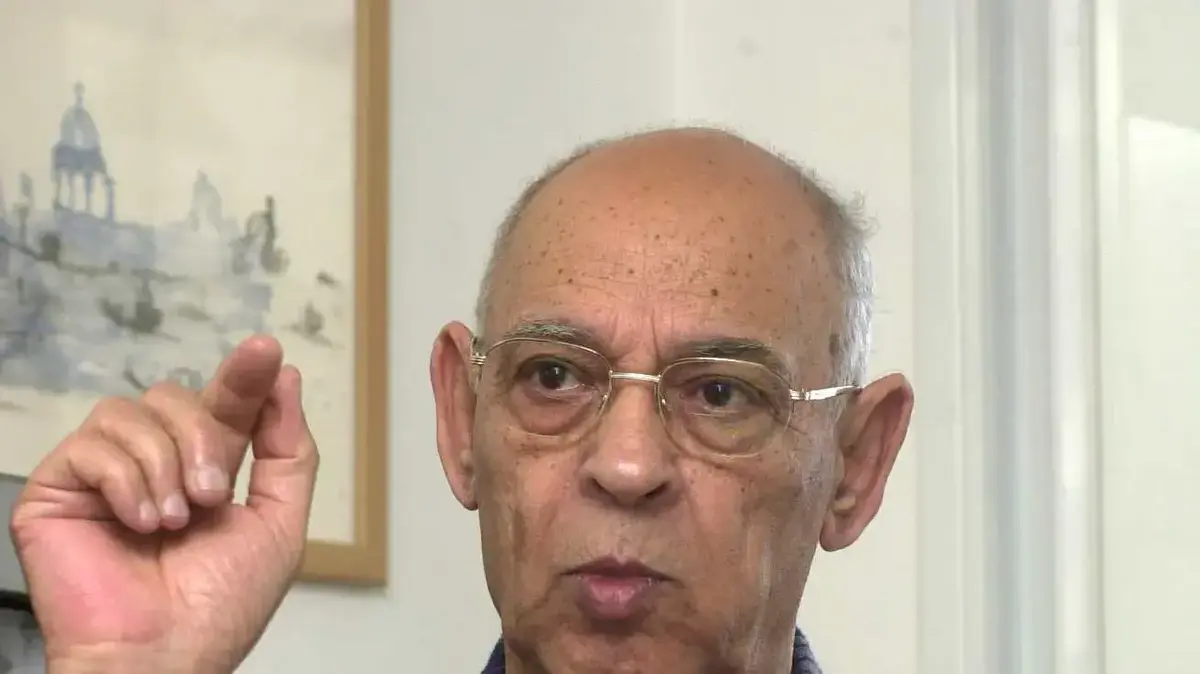
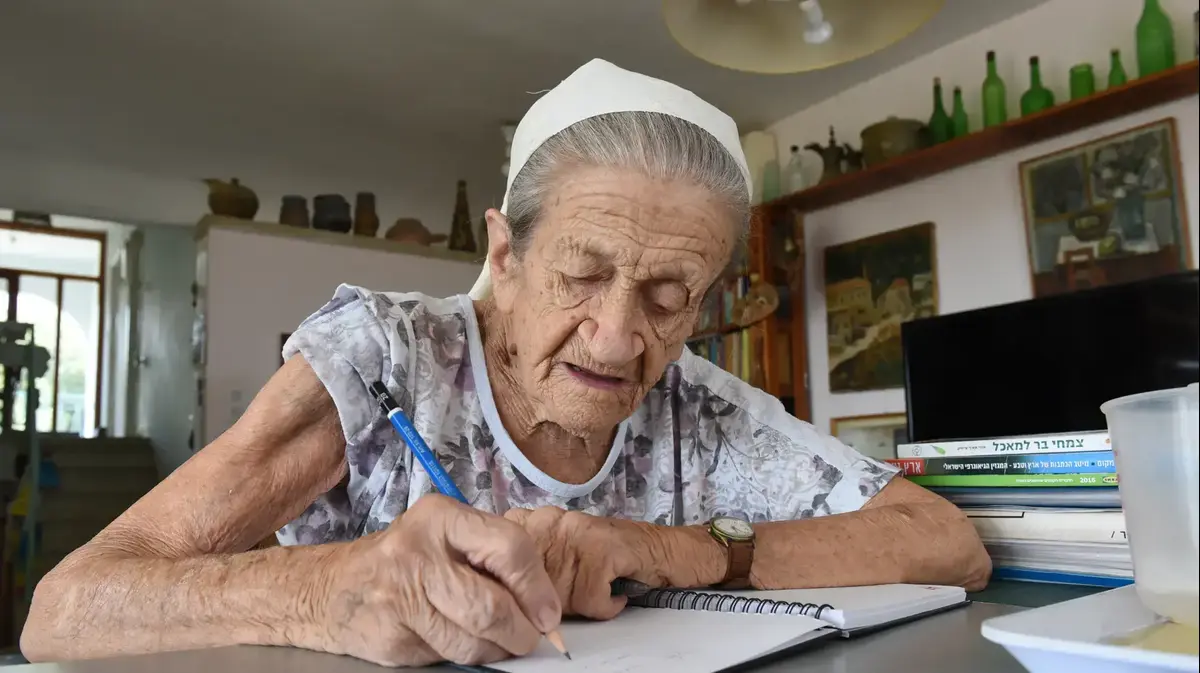
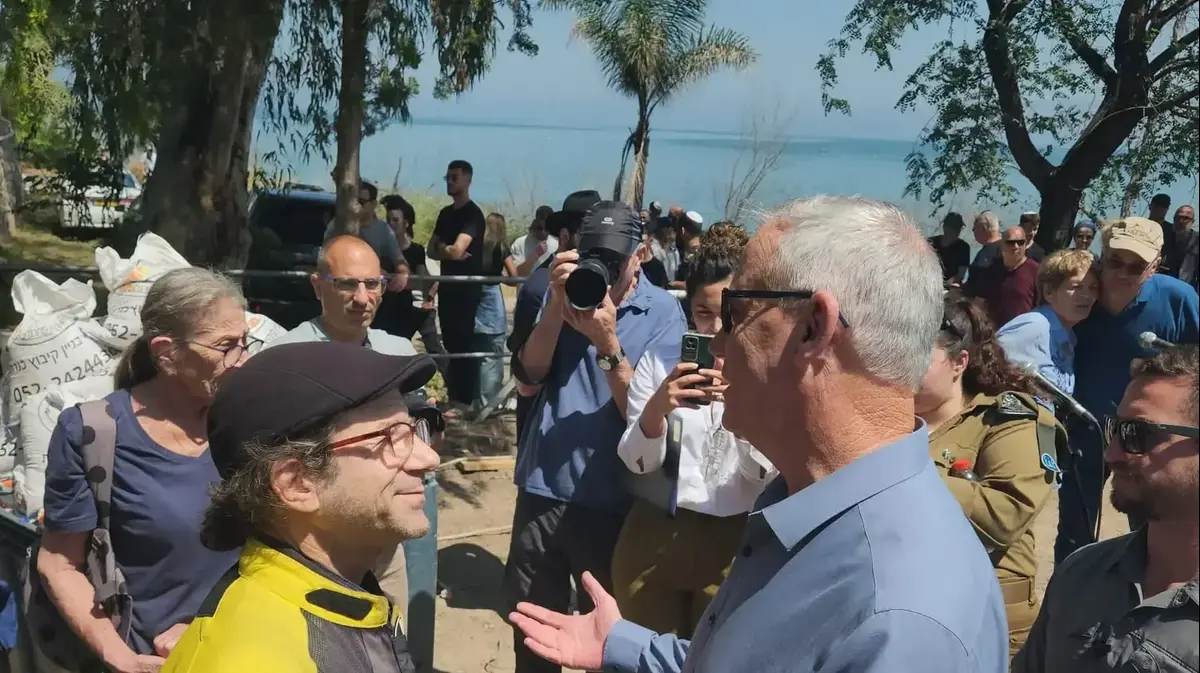
/cloudfront-eu-central-1.images.arcpublishing.com/prisa/PZFRUMDJ6JBZXN7VSPI6FPM6DU.jpg)

